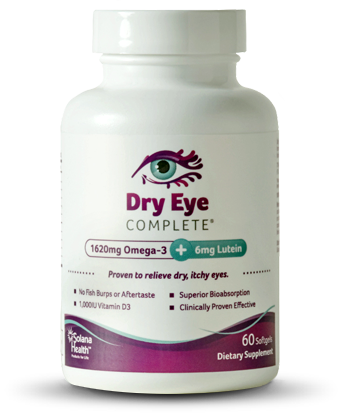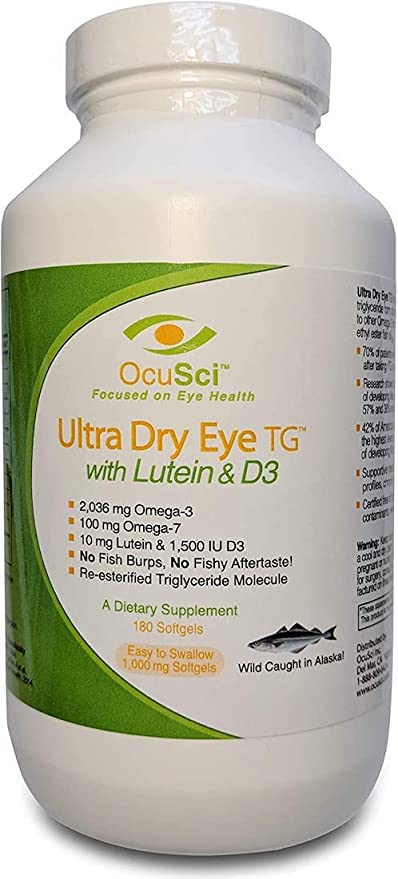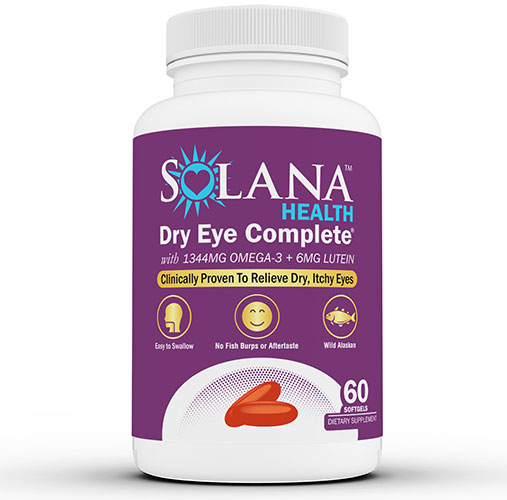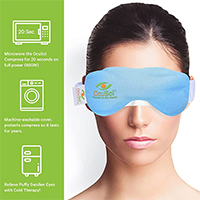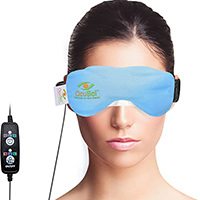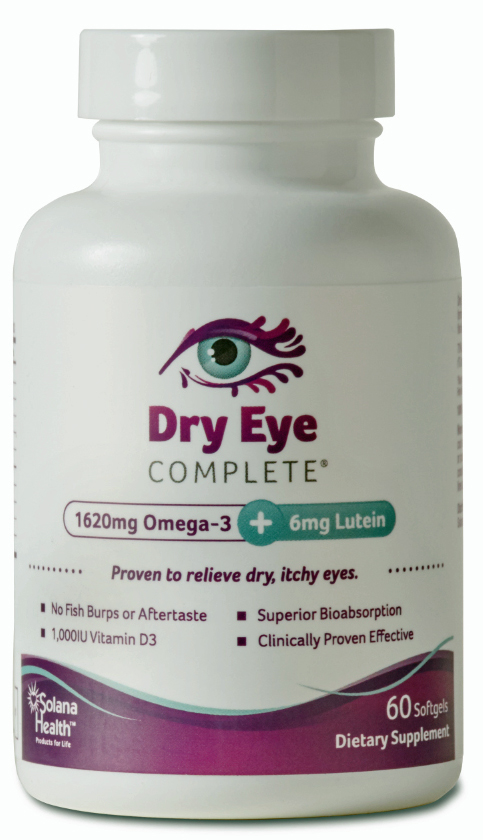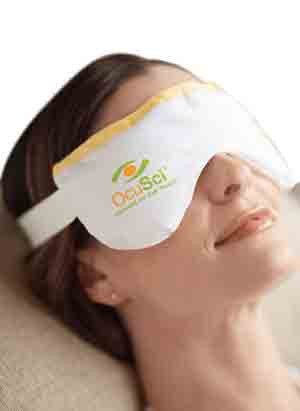Everybody should regularly visit an eye doctor just to make sure everything is still functioning properly. Just as you have your blood pressure, cholesterol, and sugars tested regularly, you should focus on your eyes as well. However, there are also some things that you can do yourself to make sure that, when you do visit your eye doctor, the results will be as positive as possible. Below are the seven things that every eye doctor, ophthalmologist or optometrist, would like you to know.
#1 Be Careful with Drops and Water
Drops and water can cause a lot of problems. One very common issue, for instance, is that people who wear contacts rewet them with water from the tap. This is a terrible idea because tap water can damage not just the contact lens, but also the eye. The greatest danger is exposure to the Acanthamoeba parasite, which could lead to your needing a corneal transplant. If, for whatever reason, you must rewet your lenses and you do not have a contact solution with you, make sure it is sterile water, saline water, or, exceptionally, artificial tears.
Another big problem with getting water and drops in the eyes is that people self-medicate with them. This is because they are generally available as over the counter remedies, which means people think they are safe. Even those who like to avoid medication, over the counter or prescription, can put themselves at risk. They may have read online that honey or milk is good for the eyes, for instance, when it can actually lead to vision loss.
#2 Listen to What Your Eyes Are Telling You
A lot of people develop eye problems due to simple forgetfulness (leaving in contacts overnight) or small accidents. Usually, this leads to just a bit of discomfort and it is often pretty clear why there is an issue. However, as the table below shows, different types of pain can mean different things.
| Type of Pain | Possible Meaning |
|
|
| Radiating | Sinus problems |
|
|
| Loss of vision in one or both eyes, even if it is temporary | Transient ischemic attack (TIA) or mini-stroke |
| Flashing lights, double vision, floaters | Retinal detachment |
| Headaches while watching television | You need glasses |
| Swelling, stinging, redness, itchiness | Infection |
| Double vision at night | Cataracts |
When you have any of these types of pain, it is not a given that you also have the possible meaning associated with it. But what it does demonstrate is that you must seek medical attention. Basically, you need to listen to what your eyes are telling you.
#3 LASIK Is a Major Procedure
Because LASIK is now a commonly performed procedure, people see it as if it is no big deal. In reality, however, it is a type of major surgery and has some side effects such as dry eye syndrome. It has been marketed as if it is a quick and easy procedure that you can have completed anywhere. Not everybody is a good candidate for LASIK, and it is important to find a specialist who is actually trained in performing the procedure properly. This means it costs a little bit more as well. It should be noted that if something were to go wrong with LASIK, the damage can be tremendous and even more costly. In order to be a suitable candidate for LASIK, you must:
- Be at least 18 years old.
- Have had the same eye prescription for at least 12 months.
- Pass a corneal topography, corneal curvature, and corneal thickness test.
#4 Eat a Healthy Diet
Everybody seems to know that carrots are good for the eyes. The reason why they are good is because they contain vitamin A, which protects the retina. However, this vitamin can be found in many other vegetables as well, some of which protect you from other eye conditions. These include:
- Green leafy vegetables such as broccoli, spinach, and kale, to protect you from age related macular degeneration
- Omega 3 fatty acids found in tune, mackerel , and salmon, to protect your from dry eye syndrome
#5 Not Only the Elderly Get Glaucoma
We often hear of elderly people developing glaucoma. This happens when the optic nerve is damaged, which may lead to loss of vision. However, it is very important to know that you don’t have to be elderly to develop a glaucoma. Rather, most ophthalmologists recommend that people with an increased risk (such as those with a direct family member who has a glaucoma), are tested every other year after turning 40. Glaucoma can even occur in children, for instance. Those who have a parent with glaucoma are almost guaranteed to get it themselves. Often, there are no symptoms associated with it, until you suddenly start to notice that some of your visual field is lost. Make sure, therefore, that you are tested for this regularly, regardless of your age.
#6 Get Your Eye Exams Right
A lot of people are confused about how often they should go for an eye examination. Anyone who has an eye disease, or is likely to develop one, should be checked every year. It is possible, however, that your ophthalmologist allows you to “skip” a yearly examination. That simply means that you are in perfect health and that there is therefore no reason to see you so often.
Regardless of how often you have eye examinations, there are situations in which it is vital that you make an appointment with an eye doctor straight away. These situations are best remembered as “RSVP”:
- R – Redness. Eyes that suddenly turn red could be infected and must be treated straight away.
- S – Sensitivity to light and/or secretion. Both of these usually point to an inflammation being in place.
- V – Vision, which, if it suddenly changes, can be indicative of anything from a stroke to a cataract.
- P – Pain, as it is important to find out what pain is caused by. It could be harmless, such as simple tiredness, but it could also be worse.
Recommendations for testing are:
- Kids under 20 with a refractive error should be tested yearly.
- Kids under 20 with 20/20 vision should be tested every three years.
- Those between 20 and 40 should be checked every other year.
- Those over the age of 40 should have two yearly visits to the ophthalmologist to check the pressure of the eye.
- Diabetes should get checked once per year to help prevent diabetic retinopathy, glaucoma, or cataract.
#7 Always Wear Sunglasses
The damage that can be done by the UV rays of the sun to the tissue of the eyes can be tremendous. It can lead to chronic redness in the eye, and increases the risk of developing age-related macular degeneration and cataracts. Hence, it is important to always wear sunglasses, regardless of how sunny it is. If at all possible, you should get 100% UVA and UVB protection when you buy your sunglasses. Nevertheless, any is better than none at all. Also, darker glasses do not actually stop more UV rays, so you can be quite choosy when it comes to your glasses.
Unfortunately, people usually don’t know that they have a problem with their eyes until their vision suffers severely. It is also quite common for people to ignore it, believing that the issue will just go away on its own. An easy check is to cover one eye and attempt to read something with the other, and to then repeat it with the other eye. If you find it difficult to read, you should go see an eye doctor. It is always better to be safe than sorry because vision is one of our five senses, and most people don’t want to do without it.
Resources and References:
- Centers for Disease Control and Prevention – Acanthamoeba – Granulomatous Amebic Encephalitis (GAE): Keratitis (CDC.gov)
- Cornea Research Foundation of America – LASIK/Refractive surgery (Cornea.org)
- National Eye Institute – Facts about Diabetic Eye Disease (NEI.nih.gov)

